|
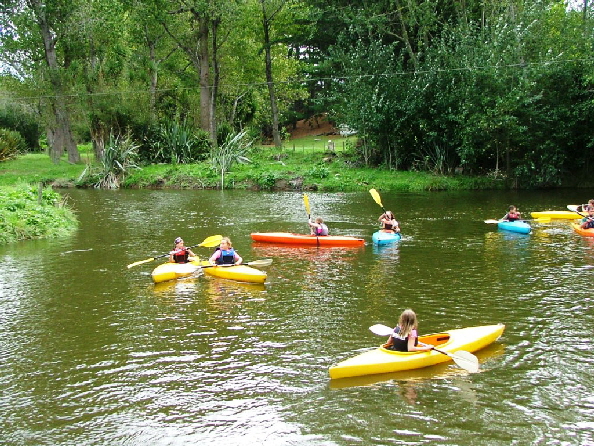
Team or Individual Sports: Lifetime Benefits
October 3, 2014
Participating in sports offers many benefits for your school-age child. Research shows children participating in sports have better:
- Social Skills
- Physical Development
- Strategies
- Persistence
- Opportunity Resolution and
- Personal Development
Social Skills: Participating in sports requires leadership, cooperation, camaraderie and team building, tolerance, respect and empathy.
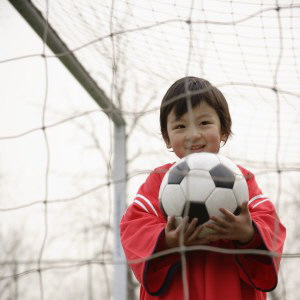 Leadership is mentored and developed playing sports. Leadership will likely come from an adult coach. Team members will rise to take on leadership roles. Your child’s role as leader or follower will likely change, maybe even game to game. In either role your child is learning about and developing leadership styles. Leadership is mentored and developed playing sports. Leadership will likely come from an adult coach. Team members will rise to take on leadership roles. Your child’s role as leader or follower will likely change, maybe even game to game. In either role your child is learning about and developing leadership styles.
Cooperation is the essence of sports. Participants agree to cooperate on the rules of the game. Teams that work together and cooperate are likely to be more successful. Cooperation is required by the whole family to get everyone to the game.
Camaraderie and Team Building: Who’s on your team? People with whom you share at least one common interest. Finding friends and fitting in is HUGE for children and adolescents and being on a team helps a lot.
- “Positive Mentors: A dedicated, thoughtful and skilled coach can have an amazing impact on children. In fact, sometimes your child will respond better to an objective coach than he will to his own parent. When kids have early, positive experiences with coaches, they continue to seek out and learn from mentors who can help them with school, jobs and other interests.” By Lucy Rector Filppu - education.com/magazine/article/Ed_Benefits_Team_Sports/
Tolerance Respect and Empathy: Sports are emotional. There’s something on the line. Someone will win and someone will lose. And along the way there will be lots of little wins and losses. One time at bat you hit a home run and the next time you strike out. One minute you serve an ace and the next you whiff the ball. One minute you break away for a goal and the next you trip over your own feet. Whether it’s your child or not, everyone is involved with the personal drama.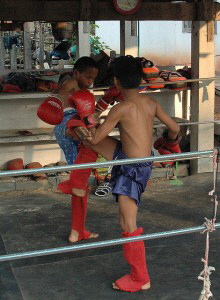
Physical Development: Research shows people, including kids, that participate in sports are healthier. Athletes have bodies that are appropriate for their age. Participating in a sport keeps your muscles strong and your heart healthy.
- “There is a growing understanding of how certain levels of physical activity may positively affect cardiovascular, musculoskeletal, respiratory and endocrine function, as well as mental health. This article sums up the evidence on 25 significant benefits linking physical activity to health enhancement. “ (http://www.ideafit.com/fitness-library/benefits-of-exercise)
Strategies: Sports are dynamic. The situation is changing all the time. Participants practice correlating the different factors into their strategies. Thinking critically and quickly, exercising judgment is what keeps a win happening or provides the impetus to turn things around. Whether it’s about this game, this team, this opponent, this shot there is strategy on many different levels.
- “Ideally, the best sports program for kids, starting at about l0, would be one individual sport and one team sport per academic year. For adolescents, who typically are searching for their own identity and experimenting with new behaviors and possibilities, organized sports and physical activity provide opportunities for self-expression, and the development of skills in communication, negotiation and leadership.” Child Study Center Letter Volume 9. No: 1 - N.Y.U.
Persistence, Goal Setting and Practice: Sports require skills. Different people will be more gifted and naturally talented than others. One child may be a great pitcher and another never strikes out. Your child can develop their skills. Let your child set their own goals. You can help them with the terminology and mechanics but resist the urge to become the score keeper. Maybe your child wants to throw further. You might point out that they can work on it. Perhaps you measure how far they can throw now. And then in a few weeks, after y’all have persisted in working on the goal, practiced, y’all measure again.
Two points on practicing. First, “Practice does not make perfect”. “Perfect Practice makes Perfect”. Practice the right way with the right mechanics and technique. Secondly, visualization is shown to be as good as practice. Maybe a little esoteric for young children.
- “Establish realistic goals that your child can live up to. You will find that children work harder if they think success is possible. For all children, emphasize the fun aspect of sports.” Child Study Center Letter Volume 9. No:
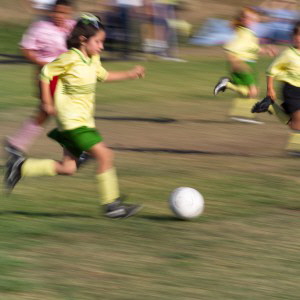 1 - N.Y.U. 1 - N.Y.U.
Opportunity resolution: Sounds more “up” than “Problem Solving”. Whatever you call it sometimes things are not going as you would like; you have an opportunity to resolve. Happens all the time in sports. Happens all the time in life. Take a step back. Put your emotions in check to take a look at what’s happening and look for a logical explanation. Once you have some facts, formulate a game plan.
Personal Development:
Confidence: You may be a gifted athlete. Or you may be the person that holds the team together. In either case, it sure feels good to be a part of something and know you make a difference.
Self-control: Ideally you are out there having fun. However, circumstances do arise when less than positive emotions or attitudes will surface. It may be another player’s problem. Still, our emotions, our choices about what to do or say.
Focus: Like most everything else, performance and accuracy improve with focused attention. There are different kinds of multitasking; doing two things at once is not as effective as doing one thing at a time and applying one’s focused attention.
Prejudice: Different people of different ethnicity, socioeconomic status, background, religion, culture are all equal on the playing field. Surprising talent comes from everywhere. Muggsy Bogues helped the United States win the gold medal in Basketball at the 1986 FIBA World Championship. He is 5′' 3”.
Pride: Team pride. Personal Pride in a good shot. Pride in the way your team faced a challenge. Pride in not blowing up when the other player fouled you and the ref didn’t catch it. Feels good to set your mind on something and achieve it; individually and as a team.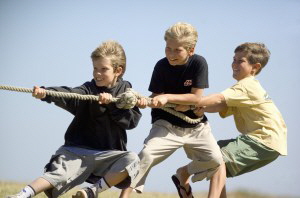
Dedication: You know the effort you put into your sport. You can gauge the commitment and dedication of your friends and teammates. Hopefully there is an understandable reconciliation between dedication and success.
Deal with Disappointment: Every time you play there is a winner and loser. It’s exciting and disappointing to win in the last few seconds of the game – depends which side your on. Like sports, life will offer times when things don’t go exactly right. Sports are one way to experience and prepare for the adventures of life.
- “Research shows that, in addition to being a source of just plain fun, sports promote healthy development in many areas with positive effects that last into adulthood.” Child Study Center Letter Volume 9. No: 1 - N.Y.U.
Excellent article (with the good, the bad and the ugly about sports and children) from the Child Study Center at New York University available’in its entirety here.
|